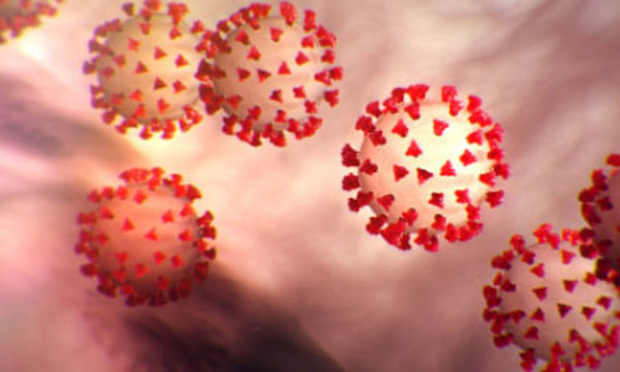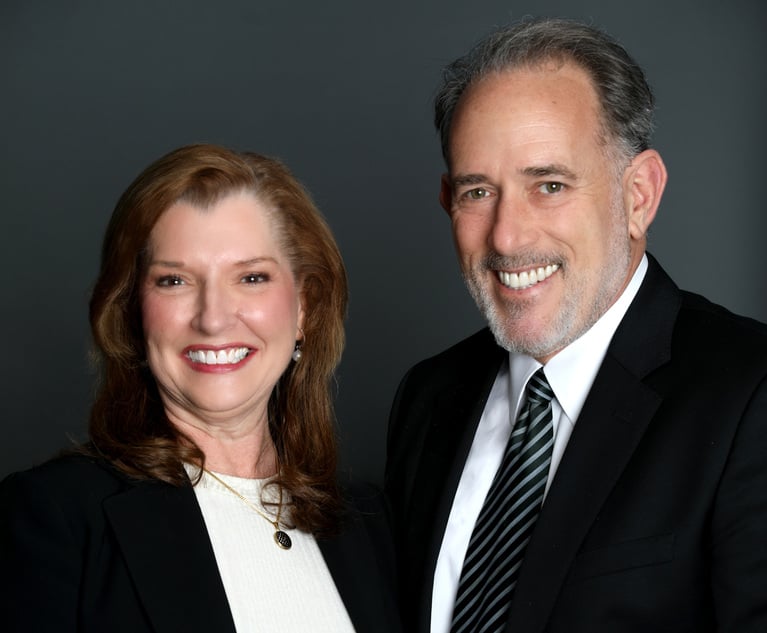The spread of the new coronavirus has forced people all over the world to isolate themselves en masse, and lawyers are no different. In response, many law firms have turned to partial measures, including voluntary and rotating remote policies, to stem transmission and protect their talent.
But simply reducing the amount of attorneys and staff in an office isn’t enough, two infectious disease experts say.
Local governments in Los Angeles, New York and Miami, among others, have instituted strict curfews and rules on local business and have required that restaurants, gyms and beaches close in an effort to contain the spread of COVID-19. Many law firms have followed their lead, instituting mandatory work from home policies for lawyers and staff.
Other firms have moved to voluntary work from home policies, where attorneys and staff can work from home if they are uncomfortable or come down with flu-like symptoms.
Still others have instituted a rotating work schedule. Attorneys and staff are split into different sections or “teams,” alternating the days they come into the office either every few days or week by week. Financial institutions including Goldman Sachs, Citi and JPMorgan Chase have adopted a similar regimen.
But new federal guidelines that discourage gatherings of more than 10 people, as well as low COVID-19 testing rates in the U.S., raise a question of how effective voluntary and rotating policies are in limiting transmission.
The key is to ensure that attorneys and staff continue to distance themselves from each other, even if there are fewer employees in the office, said William Schaffner, professor of preventive medicine and infectious disease at the Vanderbilt University School of Medicine in Nashville, Tennessee.
Attorneys and staff should still avoid face-to-face communication and should telecommunicate for any intraoffice meetings. If face-to-face interaction is unavoidable, people should stay a minimum of six feet apart. Offices and common surfaces, such as doorknobs and desks, should be disinfected at least twice a day. And if attorneys have individual offices, Schaffner advises that they keep their doors closed as much as possible.
“If you institute everything—no face-to-face meeting, closing doors and disinfecting common services—that’s a perfectly reasonable thing to do,” Schaffner said.
In fact, Schaffner’s own department has instituted a policy in which groups of employees take turns coming into the office or working remotely.
Dr. Robert Freedman, an infectious disease expert with 33 years of experience, said risk of contracting COVID-19 grows when the number of steps involved in sanitizing and properly distancing oneself from others increases.
“You have to make sure the rules are being followed. Our chain is only as strong as our weakest link,” said Freedman, whose son is Roche Cyrulnik Freedman co-chair Vel Freedman.
Robert Freedman suggested that offices should be sanitized between shifts and echoed Schaffner’s advice that attorneys and staff still telecommunicate within the office if they must be in the building. Freedman also pointed to a recent study that suggested that COVID-19 particles can remain suspended in the air for up to three hours, adding that firms should wait at least that amount of time before rotating shifts.
While Freedman said he isn’t being critical of law firms and its leaders, he questioned why firms can’t have their attorneys and staff work from home in light of how quickly COVID-19 is spreading across the world. He said for the first time, he did not vote in the Florida primary because of the high risk of transmission in public spaces.
“If you’re going to do shifts, then don’t make it look good on paper,” he said. “Learn to adapt. Learn to do the right thing for the community. We need to stop this global pandemic.”
Read More
Davis Wright: Deceased Staffer Who Had Flu-Like Symptoms Tests Negative for COVID-19
Recruiter David Lat, Founding Editor of Above the Law, Tests Positive for COVID-19
Big Law Goes Remote: Updates on Law Firm Closures During the Coronavirus Crisis
NOT FOR REPRINT
© 2024 ALM Global, LLC, All Rights Reserved. Request academic re-use from www.copyright.com. All other uses, submit a request to [email protected]. For more information visit Asset & Logo Licensing.


 Illustration of coronavirus.
Illustration of coronavirus.








